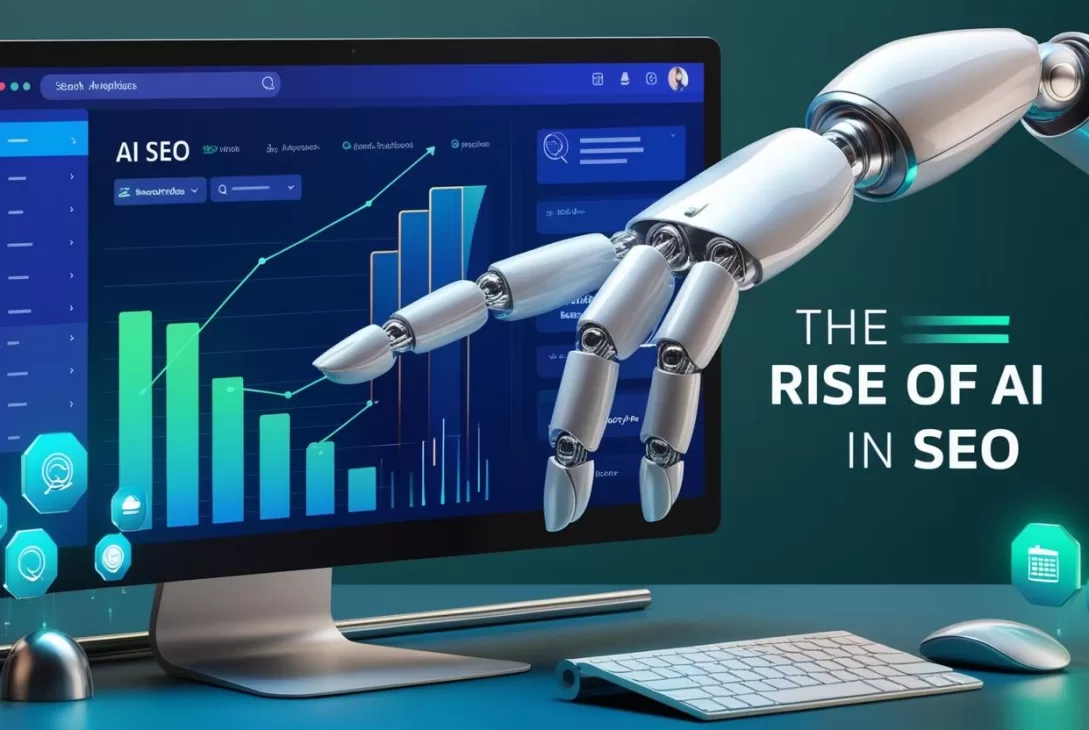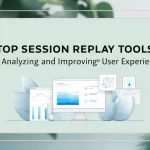The integration of artificial intelligence (AI) into search engine optimization (SEO) has become a major trend reshaping the digital marketing landscape. As we step into 2025, the future of SEO with AI is unfolding with remarkable speed. Below is an exploration of the future of SEO in the AI era, aimed at business owners and digital marketers, to help them navigate this transformative journey.
The Current State of AI in SEO
AI technologies have already made significant inroads into SEO. For instance, Google’s RankBrain, launched in 2015, was one of the first AI algorithms using machine learning to understand search queries and deliver relevant results. Today, AI is deeply embedded in modern SEO practices, assisting businesses in analyzing vast amounts of data, predicting trends, optimizing content, and more. AI tools are widely applied in areas such as keyword research, content optimization, technical SEO, and user experience (UX) improvement. For example, AI can analyze millions of search queries in seconds, suggesting optimal keywords based on competition, search volume, and intent. It can also scan websites to detect issues like broken links, slow-loading pages, and duplicate content, offering instant recommendations for fixes. In terms of content, AI analyzes existing content and provides suggestions for readability, structure, and keyword placement improvements. Some tools even predict how content will perform before publication.
The Future of SEO Driven by AI
- Voice Search Optimization: With the proliferation of smart devices and virtual assistants like Amazon’s Alexa, Google Assistant, and Apple’s Siri, voice search is gaining popularity. By 2025, it is estimated that voice searches will account for a significant portion of all search queries. Businesses need to optimize their content for voice search by leveraging natural language processing (NLP) and conversational keywords. AI-powered NLP algorithms play a crucial role in optimizing content for voice search. Marketers must adapt their SEO strategies to ensure their content is structured and optimized to meet the unique requirements of voice search algorithms.
- AI-Powered Content Creation: AI-driven content creation tools are revolutionizing content production. These tools can generate high-quality articles, blog posts, social media content, and more based on specific keywords and topics. In 2025, AI is expected to produce even more personalized and engaging content tailored to individual user preferences and behaviors. AI can produce content at scale while maintaining quality, helping businesses meet the growing demand for content. Additionally, AI can optimize content for search engines by analyzing search trends and user intent, ensuring the content aligns with SEO requirements.
- Advanced Predictive Analytics: AI-powered predictive analytics enables businesses to forecast trends, consumer behavior, and market demands. By analyzing historical data, AI algorithms provide insights into future SEO strategies, helping businesses stay ahead of the competition. Predictive analytics will become a cornerstone of strategic planning, enabling more accurate and data-driven decisions. For example, AI can predict which topics will gain traction, allowing businesses to create relevant content before demand surges, staying one step ahead of competitors.
- Enhanced User Experience (UX): AI is transforming user experience by personalizing interactions and optimizing site performance. In 2025, AI-driven UX improvements will focus on personalized content delivery, chatbots and virtual assistants for real-time support, and dynamic web design to create responsive and adaptive websites catering to different devices and user behaviors. AI can analyze user behavior data to deliver content tailored to individual preferences, improving user engagement and satisfaction. It can also optimize site speed and navigation, enhancing the overall user experience and indirectly boosting SEO performance.
- AI-Driven Link Building: Link building remains a critical aspect of SEO, and AI is streamlining this process. AI tools can identify high-authority websites, analyze backlink profiles, and automate outreach campaigns. In 2025, AI is expected to play a more significant role in developing effective and ethical link-building strategies. AI can quickly scan the web to find websites with high domain authority and relevance, suggesting potential link opportunities. It can also monitor backlink profiles, track new and lost links, and provide data-driven insights to help businesses build high-quality backlinks.
- Image and Video SEO: Visual content is becoming increasingly important in SEO. AI-driven image and video recognition technologies can analyze visual elements and optimize them for search engines. By 2025, businesses will need to invest in visual content optimization to stay competitive and enhance their online visibility. AI can extract keywords and context from images and videos, generating relevant tags and descriptions to improve their searchability. It can also analyze visual content trends to help businesses create more appealing and effective visual assets.
- AI and Local SEO: Local SEO is vital for businesses targeting specific geographic regions. AI can analyze local search trends, customer reviews, and competitive landscapes to help businesses optimize their local SEO strategies. In 2025, AI is expected to provide more accurate and actionable insights for local businesses, strengthening their online presence and attracting more local customers. AI can process geolocation data and local search queries to help businesses optimize their location information on search engines and maps. It can also analyze local customer reviews and feedback to identify pain points and opportunities for improvement.
- AI for Mobile SEO: With the increasing prevalence of mobile devices, mobile SEO has become essential. AI can optimize the mobile user experience by analyzing mobile-specific search queries, page load times, and user behavior. In 2025, mobile-first indexing will be the norm, and businesses must ensure their websites are fully optimized for mobile users. AI can conduct mobile usability tests, identify issues like slow loading speeds and poor mobile navigation, and provide optimization recommendations to enhance the mobile user experience and improve mobile SEO performance.
- Algorithm Updates and AI: Search engines continuously update their algorithms to improve search results and user experience. AI plays a key role in these updates by analyzing user behavior and search patterns. Businesses need to stay informed about algorithm changes and adapt their SEO strategies accordingly. In 2025, AI will enable businesses to anticipate and respond to algorithm updates more effectively. AI can monitor algorithm changes in real time, analyze their potential impact on businesses, and provide timely optimization suggestions to help businesses maintain their search rankings.
Trends Driving the Future of SEO
- Shift from Keywords to AI-Powered Discovery Systems: We are witnessing a fundamental transition from traditional keyword-based search to AI-driven discovery systems that understand and anticipate user needs. Unlike traditional search engines, AI platforms offer holistic interpretations of user queries, providing detailed answers and predicting follow-up questions. This shift requires enterprises to focus not only on visibility but also on click value. It also necessitates the integration of multimodal search, enabling simultaneous searches across text, images, voice, and video. Real-time content analysis by AI engines has made freshness and authenticity more critical than ever.
- Rise of Generative AI in Content Creation: Generative AI tools can produce high-quality content at scale, saving businesses time and resources while meeting the growing demand for content. In the future, generative AI will become even more sophisticated, capable of creating content tailored to specific user preferences and behaviors. It will also enable real-time content adaptation, adjusting content based on user feedback and changing search trends to enhance its relevance and attractiveness.
- Growing Importance of Data Privacy and Security: As AI becomes more prevalent in SEO, data privacy and security concerns are intensifying. Businesses must ensure that AI tools comply with data protection regulations such as GDPR and CCPA while safeguarding user data from breaches and misuse. This requires implementing robust data encryption, access controls, and privacy policies to build user trust and avoid legal risks.
Preparing for the Future of SEO with AI
- Develop AI Literacy and Skills: Business owners and digital marketers need to cultivate an understanding of AI technologies and their applications in SEO. This includes learning about machine learning algorithms, natural language processing, and data analysis techniques. By mastering these skills, professionals can better leverage AI tools and strategies to optimize SEO efforts. For example, learning Python programming and data analysis tools can help SEO practitioners customize AI scripts and models to meet specific business needs.
- Invest in High-Quality Data: AI relies on data to function effectively. Businesses should prioritize collecting and organizing high-quality data to train AI models and generate accurate insights. This includes user behavior data, search query data, content performance data, and more. Establishing a robust data management system ensures data accuracy, completeness, and timeliness, providing a solid foundation for AI-driven SEO strategies.
- Embrace a User-Centric Approach: In the AI era, user experience is more critical than ever. Businesses must shift their focus from mere keyword rankings to delivering exceptional user experiences. This involves creating high-quality, relevant content that addresses user needs and pain points while optimizing site speed, mobile-friendliness, and navigation. Only by satisfying users can businesses earn their trust and loyalty, ultimately achieving long-term SEO success.
- Stay Updated on AI and SEO Trends: The field of AI and SEO is evolving rapidly. Professionals should stay informed about the latest developments in AI technologies and SEO trends by following industry blogs, attending conferences, and joining professional communities. This enables businesses to promptly adopt new AI tools and strategies, staying ahead of competitors.
Challenges and Risks of AI in SEO
- Algorithmic Transparency and Ethical Concerns: As AI algorithms grow more complex, ensuring their transparency and fairness becomes challenging. Businesses may struggle to understand how AI makes decisions, raising concerns about algorithmic bias and unfair competition. Additionally, unethical use of AI in SEO, such as generating low-quality, spammy content or manipulating search results, could damage a business’s reputation and lead to penalties. Companies must establish clear AI ethics guidelines, prioritize algorithmic transparency, and use AI responsibly to align with ethical standards and regulatory requirements.
- Quality of AI-Generated Content: While AI can produce content efficiently, the quality of AI-generated content may sometimes fall short of human-created content in terms of creativity, depth, and emotional resonance. Overreliance on AI-generated content could result in content that lacks uniqueness and appeal, failing to meet user expectations. Businesses should use AI as an assistive tool rather than a replacement for human creativity, combining AI-generated content with human editing and refinement to enhance its quality and value.
- Dependency on AI and Skill Degradation: Overdependence on AI tools may cause SEO professionals to lose fundamental skills such as critical thinking, content creation, and strategic planning. In the event of AI tool failures or limitations, businesses might struggle to adapt. To avoid this, professionals should maintain and hone their core SEO skills while using AI tools to enhance efficiency and effectiveness.
In conclusion, the future of SEO with AI holds immense potential. Business owners and digital marketers should actively embrace AI technologies, integrate them into SEO strategies, and continuously learn and adapt to stay ahead in the digital marketing landscape. By leveraging the power of AI, businesses can unlock new opportunities for growth and achieve greater success in search engine optimization.









